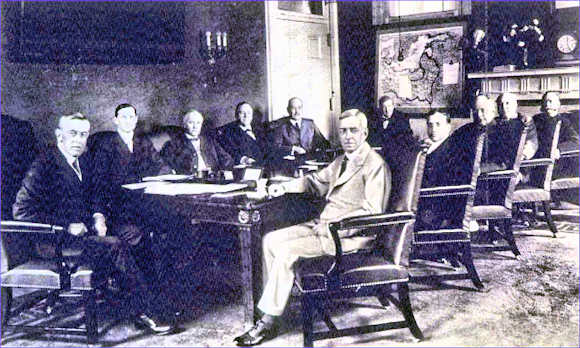 |
| At a Preparedness Day Event |
United States Constitution: Article II, Section 2, Clause 1:
The President shall be Commander in Chief of the Army and Navy of the United States, and of the Militia of the several States, when called into the actual Service of the United States; he may require the Opinion, in writing, of the principal Officer in each of the executive Departments, upon any Subject relating to the Duties of their respective Offices, and he shall have Power to grant Reprieves and Pardons for Offences against the United States, except in Cases of Impeachment.
Articles
Is America's 1914-1917 Neutrality a Myth?
Interviewing Historian Thomas Fleming on America, President Wilson, and the Great War
"I Have Seen War" FDR As Assistant Secretary of the Navy
When Wilson Seized America's Railroads
How Going to War Reshaped President Wilson's Thinking
America's Decision to Send an Expeditionary Force to Europe
 |
| President Wilson and His Wartime Cabinet |
General John J. Pershing Appointed Commander of the American Expeditionary Forces
Wilson's October 1918 Naval Surprise
8 January 1918: President Wilson Enunciates the Fourteen Points
Pershing Advocates Unconditional Surrender
The Rough Riders Don't Ride Again
President Woodrow Wilson's Stroke: Illness Strikes
Reviews
 |
| Wilson with General Pershing in France, Christmas Day 1918 |

No comments:
Post a Comment